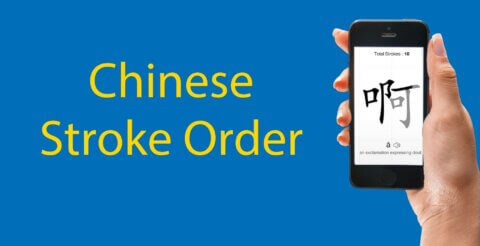Breaking Barriers: Winning Strategies for Studying with a Health Condition

Studying a language can open many doors – from meeting new people to working abroad. It can be a lot of fun and very rewarding.
However, people with a health condition may not be able to study consistently or travel as freely as others.
Some of our students understand this unfortunate situation, so we’ve decided to write a post on how you can stay motivated to study when you have a health condition.
Disclaimer: This blog post was not written by a medical professional, but by a language student who has lived with multiple health issues for over 10 years.
Studying With a Health Condition | Be Kind to Yourself
Studying With a Health Condition | How can I Look After Myself When Studying?
Studying With a Health Condition | Get Lots of Rest
Studying With a Health Condition | Low Energy Study Activities
Studying With a Health Condition | Try Out New Study Methods
Studying With a Health Condition | Take a Break From Studying
Studying With a Health Condition | Have Fun!
Studying With a Health Condition | FAQs
Studying With a Health Condition || Be Kind to Yourself
First of all, remind yourself that taking any steps towards studying is already a big achievement and you should be proud of that.

Secondly, everyone’s lives are different.
People who study languages come from all over the world and will have different jobs and lifestyles. Some people are at university while others care for a relative, or work long hours, but they still make time to study.
So, having a health condition doesn’t have to stop you from studying the languages that you want to learn.
Psst… looking for extra vocabulary? 👀
Self-care in Chinese: Taking a Shower
Jobs in Chinese: Occupations
Going to the Hospital in Chinese: A Student Story
Languages in Chinese: Flexi Classes with LTL
Studying With a Health Condition || How Can I Look After Myself When Studying?
If you have lived with your health condition for a long time, you may have a better understanding of what your body needs and how it may flare up.
But if you are still learning about your condition, this may be difficult. No matter what stage you’re at, there are many ways you can study and learn a language with a health condition – whether it is short-term or chronic.
- Understand your limits
- Do not pressure yourself
- Connect with people in similar situations
- Get help from family, friends, and medical professionals
- Set an ideal schedule, but allow yourself to rest if you’re ill
- Create small habits (such as Duolingo, Pleco, or 5 minutes of reading)
Studying With a Health Condition | Chinese Food Therapy
Studying With a Health Condition | Health in Chinese
Studying With a Health Condition | Drinking Hot Water
Studying With a Health Condition | Traditional Chinese Medicine

Chinese Food Therapy 食疗 shí liáo // A Beginner’s Guide
What is Chinese Food Therapy? There are many things to love about living in China, and one of them is of course, the food (see below)! There seem to be an unlimited amount of food options in China. Shanghai alone…
Studying With a Health Condition || Get Lots of Rest

If you’re unwell, the best thing you can do is rest and recover.
However, if you’re often unwell (like many of us are with a chronic illness), it can feel like you never have time to study.
You can learn to balance rest and study in your daily (or weekly) life by creating a plan with realistic goals and gathering resources for ‘low energy’ days.
One thing you shouldn’t do is force yourself or make yourself feel guilty for not studying a specific lesson or a set number of hours. If you’re sick, you need to be kind to your body.
Here’s a suggestion!
Why not have a checklist of activities you’d like to complete each week? It could be something like:
- Watch 5 episodes of Love Me, Love My Voice
- Write 1 journal entry
- Revise HSK 5 Unit 8 grammar
You don’t have to do them on a specific day. You can complete them when you feel well enough throughout the week. By the end of it, you’ll have still studied and made some progress even without a strict study schedule.
Studying With a Health Condition || Low Energy Study Activities
My favourite ways to study on ‘low energy’ days include watching Chinese dramas and using Duolingo to review vocabulary.
Depending on my energy levels, I might add new words to the Pleco or BoostChinese apps and review them. I sometimes read comics or a book, but that usually requires more energy!
Check out our favourite Chinese apps over on our blog.
Other ‘low energy activities’ include: playing Chinese board games, listening to a podcast, watching YouTube videos, or playing a game on your Nintendo Switch or other consoles.
The best way to use these options is to pick things that you’re interested in. If you already do yoga, why not give it a go in Chinese? If you love playing cosy Switch games, you could look for one that has a Chinese language option.

5 Shanghai Books You Won’t Be Able To Put Down 📖
Here are five Shanghai books that you need to check out. Once you pick these up, you won’t be able to put them down. All are set in Shanghai.
Studying With a Health Condition || Try Out New Study Methods

This suggestion works for all language students, not just for those who are unwell.
If you notice a study method isn’t working, it’s time to make some changes.
It could be that you’re studying for too many hours each day, or you don’t find the textbooks engaging. It’s also possible that you’re tired or lacking focus.
Try creating shorter study sessions, using new materials, or studying with a friend (online or in-person!).
Here are a few methods you can try out to change your Chinese study schedule:
- 5 minutes using Duolingo
- 15 minutes writing a journal entry
- 30 minutes reading a Chinese book
- 45 minutes watching a Chinese TV show
There are so many options when it comes to learning a language. Don’t be afraid to try them, and don’t feel pressured to like or use certain materials just because other people do.
What are your favourite ways to study when you’re feeling unwell? Drop us a comment below! 👇
Studying With a Health Condition || Take a Break From Studying
It’s not uncommon to see people studying for 4, 6, or even 8 hours a day. But that doesn’t mean you have to. You know your mind and your body best, so work to what you can achieve. Some days that might be 20 minutes, other days it might be 3 hours.
Shorter study sessions can be just as effective.
Can you spend 15 minutes studying 3 new words? Great!
What about 30 minutes of watching a TV show? That’s also a method of studying!
But if you’re studying for an hour or two, perhaps because you’re reviewing an exam paper or you’ve joined an online Chinese lesson, it’s important you take breaks. Every hour, take a 15-minute break to recharge. Or, for shorter sessions, you can use the Pomodoro technique, where every 25 minutes you take a 5-minute break.
Studying With a Health Condition || Have Fun!
To have fun studying a language, sometimes the best thing you can do is not compare yourself to others.
It’s easy to look at people who speak 5 languages and feel as though you’re not smart or working hard enough, but you don’t know other people’s backgrounds. Focus on yourself and what you’re able to do.
Choose activities that you enjoy and don’t be afraid to change your study materials or study schedule if you feel something isn’t working.
Interested in this topic?
You’ll find me (Claire) on Instagram at @languageslouise – where I share language-learning vibes, and talk about studying Chinese with multiple health conditions.
Studying With a Health Condition || FAQs
How can I study effectively with a health condition?
If you have a physical or mental health condition, it doesn’t mean you can’t study. But you should think about how much time you have each week, what activities are suitable for you and if you have any goals you’d like to achieve.
– Eat, sleep and rest well
– Don’t compare yourself to others
– Make small goals
– Believe in yourself
And if a daily schedule isn’t manageable for you, try having a to-do list for the week and see if that helps.
What are some low-energy study activities?
There are many low-energy study activities you can do to improve your Chinese.
Passive activities include watching TV or listening to a podcast, playing computer games in Chinese or listening to music.
You could also try reading, using a vocab app like Pleco or sending voice notes to a friend. Find what works for you and go with it!
Can LTL’s Flexi Classes help me?
Absolutely! The best thing about LTL’s Chinese language classes is that they’re flexible.
You will need to buy credits to attend individual or group lessons, but you can choose a lesson at a time that suits you.
You can even pick from a range of topics such as going to the hospital or the Chinese tea ceremony etiquette.
Want more from LTL?
If you wish to hear more from LTL Mandarin School why not join our mailing list.
We give plenty of handy information on learning Chinese, useful apps to learn the language and everything going on at our LTL schools!
Sign up below and become part of our ever-growing community!
BONUS | Want to study the local dialect known as Shanghainese? We provide Shanghainese Classes in person and online.


 Hi, my name is Mojca. I am from Slovenia in Europe and I and I work as a student advisor at our Shanghai school.
Hi, my name is Mojca. I am from Slovenia in Europe and I and I work as a student advisor at our Shanghai school.




